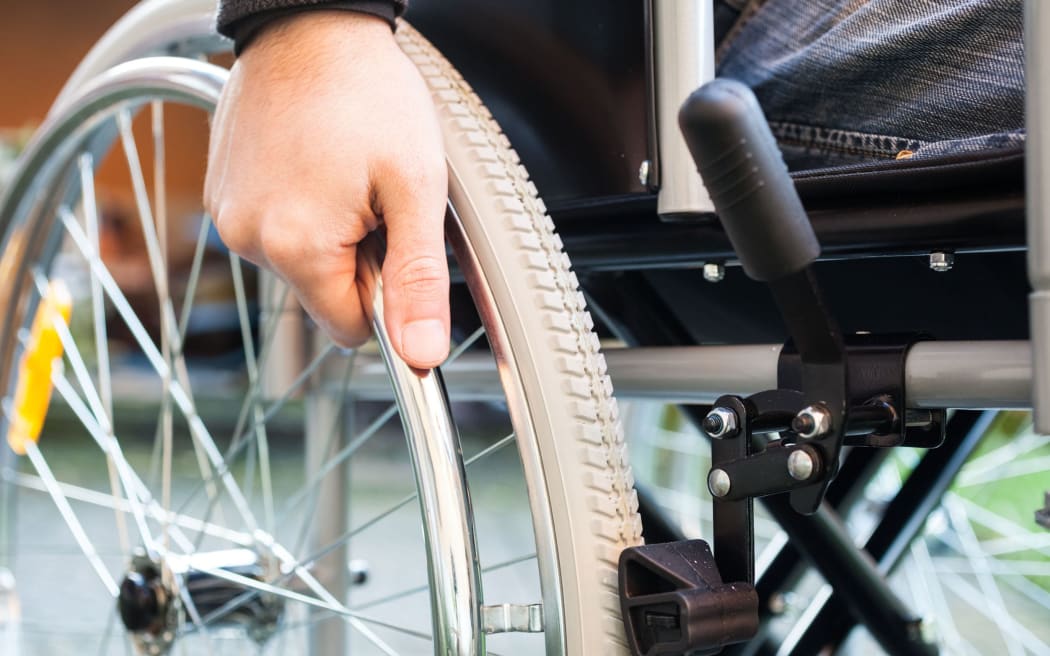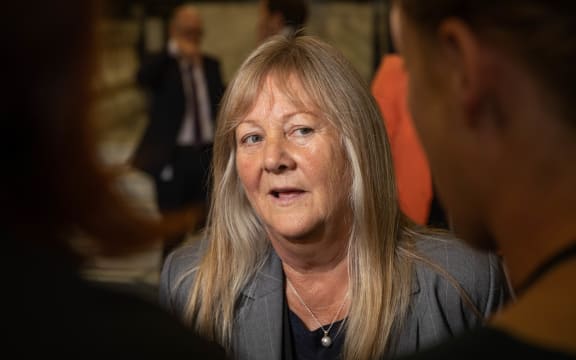This article was written by Pretoria Gordon on April 15, 2024 and published by RNZ.

University of Waikato student Nikki van Dijk uses a wheelchair and said getting to her classes was a huge battle (file image). Photo: 123RF
Accessibility issues with some facilities at universities and polytechnics is taking a toll on disabled students’ ability to study, the National Disabled Students’ Association says.
Some have even been humiliated by having to be carried into lecture halls, the association, which is calling for better accessibility legislation, says.
The Tertiary Education Commission estimates about 20 percent of tertiary students had some form of disability.
University of Waikato student Nikki van Dijk uses a wheelchair and said getting to her classes was a huge battle.
“A lot of the doors are not automated, a lot of them are quite narrow, so my chair doesn’t fit through, so many stairs it’s not funny,” she said.
“And I know this is a wide-spread issue for a lot of different disabled students.”
Van Dijk said she had to plan her papers around what rooms they were in.
“It’s quite challenging, and it’s quite isolating because you’re trying your hardest to complete a degree, and you’ve got this giant barrier stopping you, and it just makes what can already be quite stressful, an even more stressful time.”
But van Dijk said it was not the fault of the university.
She said all universities across New Zealand were doing the best they could with the resources they had. The buildings were either too old to be upgraded or would need substantial renovation.
“Universities are pretty keen to help and do what they can to make things more accessible for us.
“We have the pleasure of having universities that are quite well-established in this country, but as a result there’s not a lot to do to change the facilities.
“But sometimes they go, ‘Okay, well we could change rooms’. I’ve heard of that happening – I’ve seen it happen.”
National Disabled Students’ Association co-president Sean Prenter called on the government to help.
“We don’t have accessibility legislation with teeth to mean that the providers themselves have a responsibility, and so actually disability is at the front of those access conversations, and it’s also person-centred,” he said.
He said there was currently no way – if you had an issue with accessibility – to monitor, give feedback and then hold government to account “for what is an inaccessible education system”.
Van Dijk said it also needed to be more than the bare minimum.
“A lot of it was only considering things like wheelchair access, but there are things like all the fluorescent lights cause seizures, and they triggered nausea for a lot of people such as those with brain injuries, and so any legislation, any policy, needs to have more comprehensive accessibility understanding.”
Disability Issues Minister Penny Simmonds said it was incredibly disappointing that tertiary students were facing these barriers.

Disability Issues Minister Penny Simmonds. Photo: RNZ / Angus Dreaver
Whaikaha – the Ministry of Disabled People – was working on the Accessibility for New Zealanders Bill to help, Simmonds said.
“Most of the disabled community were pinning their hopes on making changes to things exactly like that, making public buildings more accessible and putting in place more structure around what’s required, but the bill as it stood – as it came back from the select committee – didn’t do that,” she said.
Simmonds said they were currently taking another look at it.
“We’ve paused it, and we’re doing an analysis of what the legislation in Canada and the US and Australia are like to see what the gaps are, to see whether we actually can amend the legislation as it is, or whether we need to start again.”
But Simmonds said they would not be consulting with the disabled community until after accessible legislation overseas was looked at.
Analysis and consultation would be done by the end of the year, she said.
In the meantime, van Dijk said the most helpful thing institutions could do was make lecture recordings universal.
“Lecture recordings have been incredibly useful, so you don’t feel like you’re missing out,” she said.
“Us disabled students in groups are also able to go, ‘Okay, we can access this building, let’s watch a recording together’.”
“A lot of disabled individuals are having to travel for appointments, in and out of hospital, and sometimes they just don’t have the capacity to be on campus, so in a way it’s actually very, very inclusive to have lecture recordings, and exactly that, it allows them to connect within the disability community with others who are suffering the same issue.”